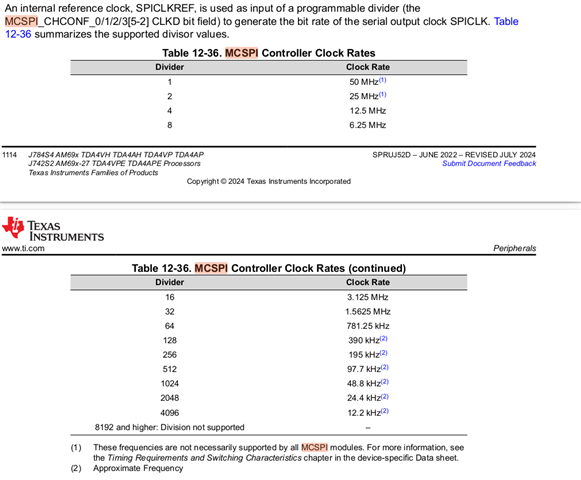Other Parts Discussed in Thread: TDA4VH
Tool/software:
HI
TDA4VH ti-processor-sdk-linux-adas-j784s4-evm-09_02_00_05
I'm using 4 GPIOs as CS, and I've verified that the pinmux settings are correct.
- ../spidev_test -s 3000000 -D /dev/spidev2.1 -C -p "1233456789abcdefghigklmnopq" The spiclk remains at 120KHZ
Best Regards,
Jun


